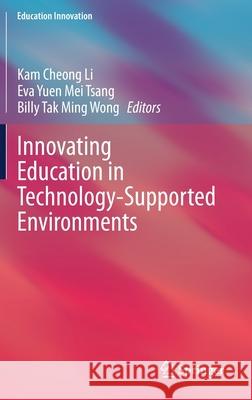Innovating Education in Technology-Supported Environments » książka
topmenu
Innovating Education in Technology-Supported Environments
ISBN-13: 9789811565908 / Angielski / Twarda / 2020 / 376 str.
Innovating Education in Technology-Supported Environments
ISBN-13: 9789811565908 / Angielski / Twarda / 2020 / 376 str.
cena 644,07
(netto: 613,40 VAT: 5%)
Najniższa cena z 30 dni: 616,85
(netto: 613,40 VAT: 5%)
Najniższa cena z 30 dni: 616,85
Termin realizacji zamówienia:
ok. 16-18 dni roboczych.
ok. 16-18 dni roboczych.
Darmowa dostawa!
Kategorie:
Kategorie BISAC:
Wydawca:
Springer
Seria wydawnicza:
Język:
Angielski
ISBN-13:
9789811565908
Rok wydania:
2020
Wydanie:
2020
Numer serii:
000471443
Ilość stron:
376
Waga:
0.72 kg
Wymiary:
23.39 x 15.6 x 2.24
Oprawa:
Twarda
Wolumenów:
01
Dodatkowe informacje:
Wydanie ilustrowane











